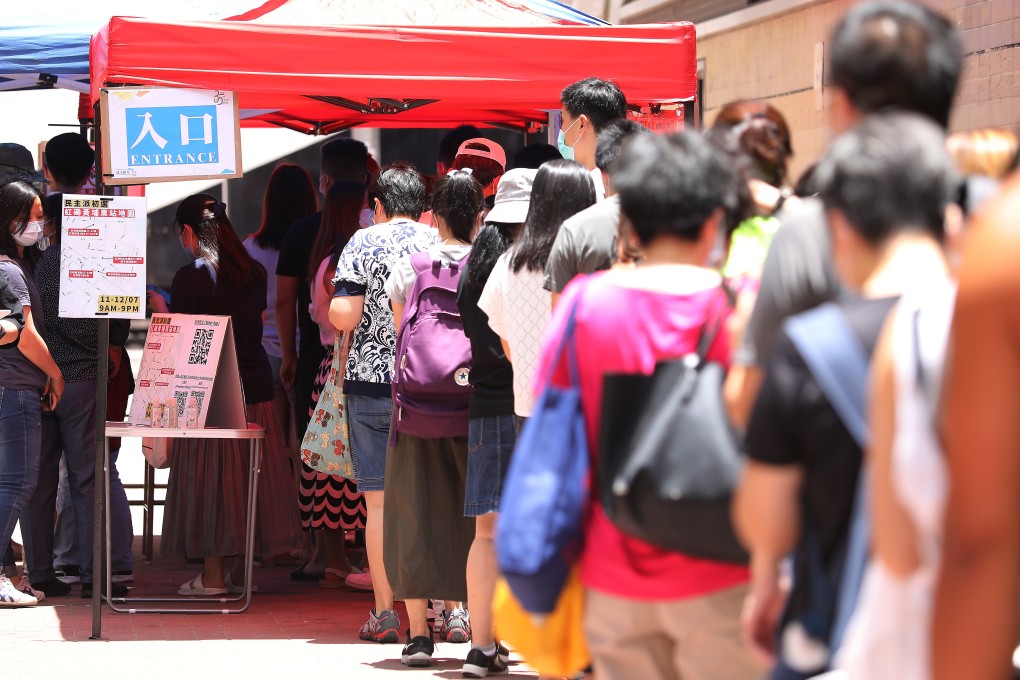Advertisement
Hong Kong elections: 234,000 residents cast ballots in opposition camp primary for Legislative Council elections, organisers say
- The number, which represents 5.3 per cent of registered voters, far exceeds overall target of 170,000 people
- Primary held to whittle down candidates for the opposition camp’s Legco drive had been mired in uncertainty after government warning
Reading Time:4 minutes
Why you can trust SCMP

More than 234,000 Hongkongers voted on the first day of a weekend primary the opposition camp is holding to select candidates for the upcoming Legislative Council elections, according to the organiser, with long lines forming across the city.
The number, which represents 5.3 per cent of registered voters, far exceeded the overall target of 170,000 people that Power for Democracy hoped would turn out across both Saturday and Sunday.
The success came despite polls opening three hours late after a public opinion outfit tabulating the ballots had their office raided by police late on Friday, forcing them to reset software as a precaution.
Advertisement
There were also concerns residents might be scared off by a rise in the number of coronavirus infections, which a top health official warned was at its most severe point since the pandemic began in January.

01:19
Hong Kong opposition camp holds primary to select election candidates
Hong Kong opposition camp holds primary to select election candidates
Meeting the press before polls closed at 9pm, former lawmaker Au Nok-hin, who coordinated the primary, said turnout was boosted by attempts by the government to suppress the event.
Advertisement
Advertisement
Select Voice
Select Speed
1.00x